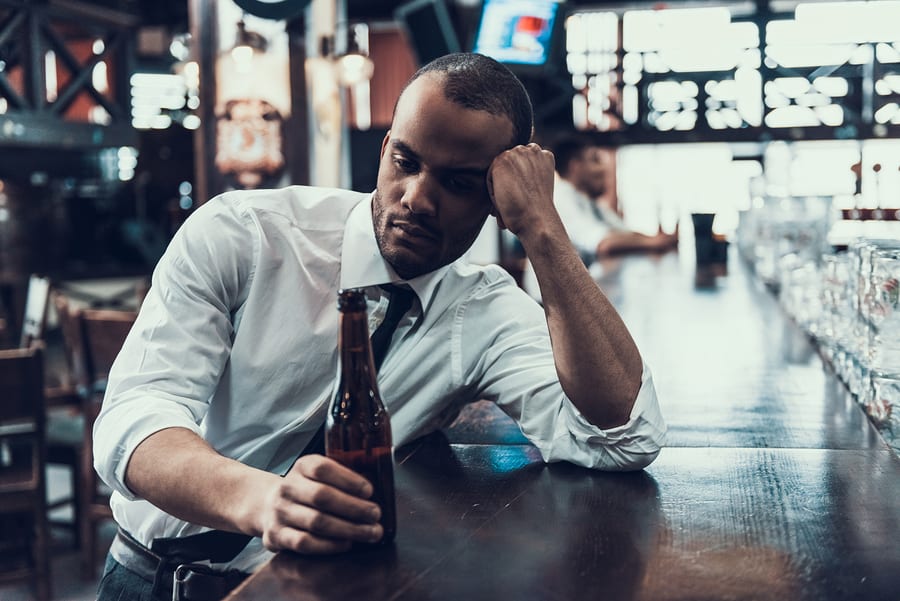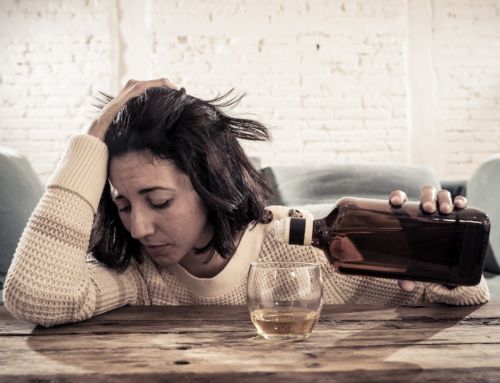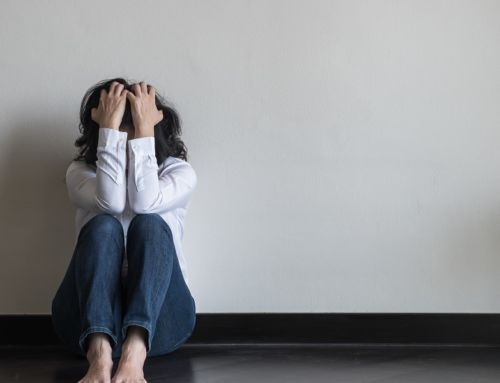For a vast number of people, consuming alcohol is a common part of everyday life. Whether tossing back a few beers after a long day at work or pouring a couple glasses of wine at dinner to take the edge off, drinking has become synonymous with unwinding and relaxing.
But at what cost has this maladaptive habit become engrained in over 16 million people’s lives within the U.S.?
With nearly 90,000 people dying annually from alcohol-related causes, alcoholism has solidified itself as one of the primary reasons of preventable death within the entire country.
While the physical dangers of alcoholism are obvious and glaring, the emotional instability and mental health issues attributed to excessive alcohol consumption and alcohol use disorders is an ever-expanding area of concern. In particular, feelings of excessive anxiety have been linked to alcohol addiction due to the widely accepted practice of treating stress with drinking and the physical impact that excessive alcohol consumption has on the human body.
But the question has been posed: Does alcoholism cause anxiety disorders? Diving deeper into this inquiry to separate fact from fiction can provide better insight into the origins of anxiety in relation to alcoholism and how to treat both sets of symptoms.
What is Alcoholism?
The disease of alcoholism is a chronic ailment in which a person is dependent on the substance in both a physical and emotional manner. The fifth edition of the Diagnostic and Statistical Manual of Mental Disorders, which is the primary source for all mental health and substance addiction diagnoses within the U.S., states that alcoholism creates a psychological need for alcohol within the addict.
It causes the person to lose control of their alcohol use while perpetuating an identifiable decline in both physical and social functioning. From there, alcoholism begins to erode the addict’s life, infect their social interactions, and devastate their overall physical and emotional wellbeing.
What is an Anxiety Disorder?
While anxiety is a normal reaction to stress, an anxiety disorder creates an excessive level of fear and nervousness within a person. This elevated anxiousness typically forces a person to avoid normal social interactions and scenarios due to their unfounded fears and excessive worry.
This ongoing worry and tension may be accompanied by physical symptoms, such as restlessness, feeling on edge or easily fatigued, difficulty concentrating, muscle tension or problems sleeping. Often, the worries focus on everyday things, such as job responsibilities, family health, or minor matters like chores, car repairs, or appointments.
In general, for a person to be diagnosed with an anxiety disorder, their fear or anxiety must:
- Be out of proportion to the situation or age inappropriate
- Hinder their ability to function normally
Anxiety disorders are the most common of mental disorders and affect nearly 30 percent of adults at some point in their lives. But anxiety disorders are treatable, and a number of effective therapeutic interventions are available to those individuals seeking to address their persistent and excessive nervousness.
Can Alcohol Cause Panic Attacks and Anxiety?
Alcohol has a negative impact on both behavioral patterns and brain functioning. In particular, alcohol is a depressant which slows down the central nervous system, reduces a person’s alertness and causes them to feel excessively lethargic and emotionally unstable.
Chemically speaking, alcoholism dramatically lowers the level of serotonin within the brain, which is a neurotransmitter that helps you feel calm and happy. These lowered levels of serotonin have been associated with increased feelings of excessive anxiety and an inability to correct the issue due to the deteriorating effects that alcohol has on the brain.
This can lead to random panic attacks, generalized anxiety and overall excessive emotionality for a person struggling with an alcohol use disorder.
How to Treat Alcoholism and Excessive Anxiety
The primary method of combating alcoholism and the excessive feelings of anxiety associated with the disorder is to decrease your alcohol consumption immediately. While this is no simple task, taking steps to address the disease can ease your transition into recovery and aid in achieving sustained sobriety.
- First, identifying that a problem exists allows you to face your addiction and decide internally that a change is needed.
- Second, it is important to thoroughly research potential treatment options and select one that works best for you and your living situation.
- Third, working to distance yourself from negative peers and environments in which your addictive behaviors are triggered can help to decrease addictive impulses and negative decision patterns.
- Lastly, fully committing to the recovery process and initiating treatment sets your sober goals in motion, giving you a new sense of purpose outside of your addictive past.
Following these simple steps can create the change within you that has been missing for so long. All it takes is that first step to embark on a journey of sustained sobriety and newfound happiness where your positivity can change your life and your potential is truly unlimited.
Do you already contend with an addiction because of your anxiety?
Do you feel your alcohol consumption exacerbates your anxiety and panic attacks?












